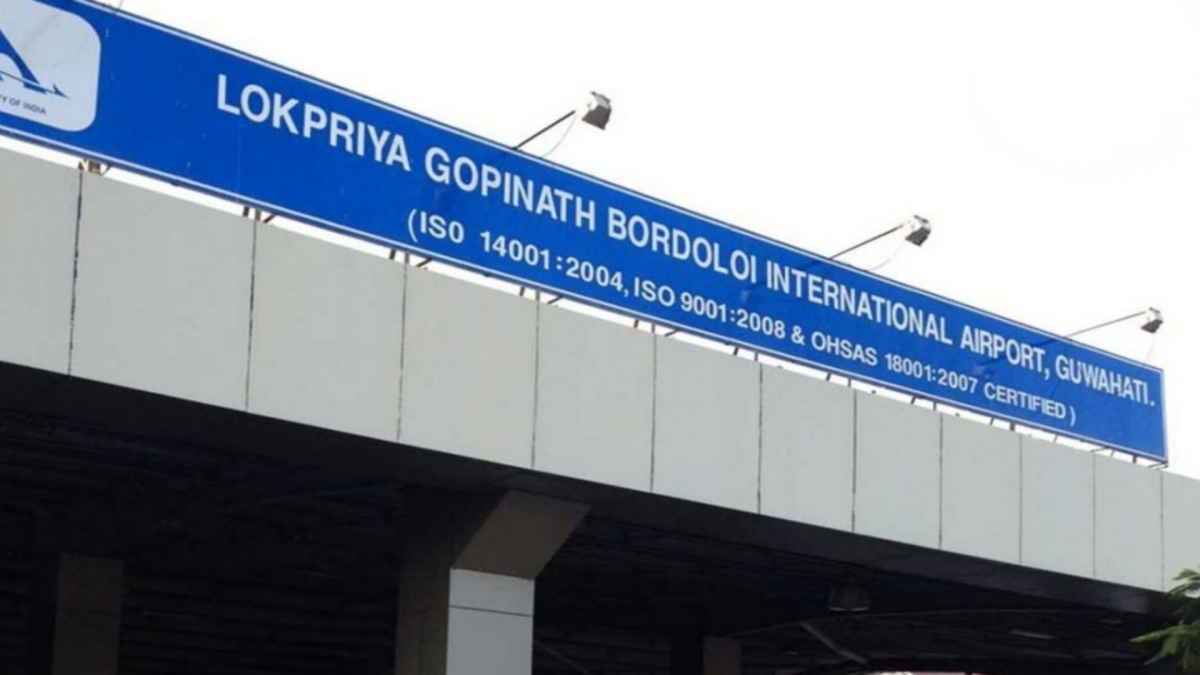Guwahati Airport Sees 35% Cargo Growth and Plans New Freight Terminal
Guwahati Airport, now managed by the Adani Group, has reported a 35% year-on-year growth in domestic cargo. The surge in cargo movement is indicative of a thriving logistics sector in the North-East region, with the airport becoming a key player in the movement of goods. To meet the growing demand, the airport is now planning to build an Integrated Cargo Terminal (ICT) that is expected to revolutionise freight operations and boost regional exports, particularly in e-commerce and perishable goods.
The driving force behind this significant cargo growth has been the operations of Blue Dart, the only cargo airline currently operating at Guwahati Airport. Since the launch of Blue Dart’s scheduled freighter services on January 29, 2024, the airport has seen an uptick in cargo volume. The airline operates a Boeing 737 freighter five times a week, with each flight carrying a 21-tonne payload. Additionally, Blue Dart also conducts charter flights for the Reserve Bank of India using a Boeing 757. This increase in air freight capacity has had a major impact on both domestic logistics and regional economic activity.
Between April and December 2024, Guwahati Airport handled a total of 19,914.5 tonnes of domestic freight, a significant portion of which was inbound cargo, accounting for roughly 60-75% of the total. While the outbound cargo, especially from a consumer market like Guwahati, remains limited, inbound freight—including e-commerce shipments, mail, and parcels—has seen substantial growth. This reflects a shift towards a more diverse, modern economy in the North-East, where e-commerce has begun to flourish. In fact, one of the most notable trends emerging from this growth is the rise in the movement of perishable goods. Items like avocados, which are becoming increasingly popular in the region, are now being transported via the airport. This shift highlights how Guwahati Airport is adapting to new logistical demands in line with global market trends.
To support this growing demand and ensure that the airport remains equipped for future logistics challenges, Guwahati Airport is in the process of conceptualising an Integrated Cargo Terminal (ICT). The new facility will cater to both domestic and international cargo and will include dedicated spaces for perishable goods, pharmaceuticals, and special cargo. The terminal is expected to become a hub for goods coming in and out of the region, ensuring that products from the North-East reach national and international markets more efficiently. The ICT project is also in line with the Assam government’s broader efforts to attract investment and boost the state’s Gross State Domestic Product (GSDP). By enhancing the capacity for both domestic and international cargo handling, the new terminal is set to play a crucial role in fostering economic growth in the region and creating new opportunities for local businesses and industries.
The development of the Integrated Cargo Terminal will provide a much-needed boost to the regional economy, especially in the context of improving logistics and infrastructure in the North-East. With the growing demand for e-commerce and exports, particularly from industries such as agriculture, pharmaceuticals, and handicrafts, the new cargo terminal could become a lifeline for businesses looking to expand their reach. From a human perspective, this expansion of cargo services also means more jobs, better connectivity, and increased opportunities for small-scale manufacturers and farmers in Assam and beyond. By making it easier for local products to be exported, whether it’s fresh produce or manufactured goods, the ICT could help position Guwahati as a key player in India’s growing logistics and export markets.
As the plans for the Integrated Cargo Terminal move forward, stakeholders and local residents alike are optimistic about the potential economic benefits that the facility could bring. With improved infrastructure and air connectivity, Guwahati Airport could soon become a significant logistics hub, enhancing trade links and contributing to the economic upliftment of the entire North-East region. With its 35% cargo growth and a clear roadmap for expansion, Guwahati Airport is poised to become a key logistics player in India. The proposed Integrated Cargo Terminal offers promising prospects for e-commerce, perishable goods trade, and overall regional connectivity. As these plans come to fruition, the future looks bright for Guwahati as a logistical hub in the North-East, driving economic growth and transforming the region’s trade landscape.


